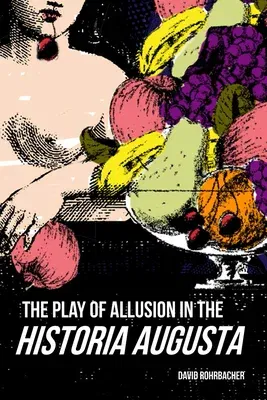David Rohrbacher
(Author)The Play of Allusion in the Historia AugustaHardcover, 26 January 2016

Qty
1
Turbo
Ships in 2 - 3 days
In Stock
Free Delivery
Cash on Delivery
15 Days
Free Returns
Secure Checkout

Part of Series
Wisconsin Studies in Classics
Part of Series
Wisconsin Studies in Classics (Hardcover)
Print Length
272 pages
Language
English
Publisher
University of Wisconsin Press
Date Published
26 Jan 2016
ISBN-10
0299306003
ISBN-13
9780299306007
Description
Product Details
Author:
Book Format:
Hardcover
Country of Origin:
US
Date Published:
26 January 2016
Dimensions:
23.11 x
15.75 x
2.03 cm
ISBN-10:
0299306003
ISBN-13:
9780299306007
Language:
English
Pages:
272
Publisher:
Weight:
498.95 gm